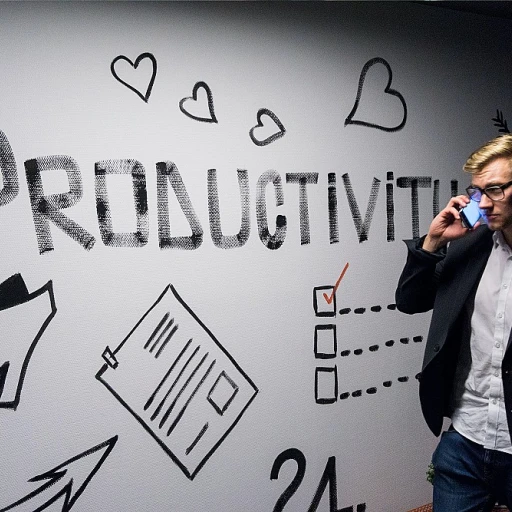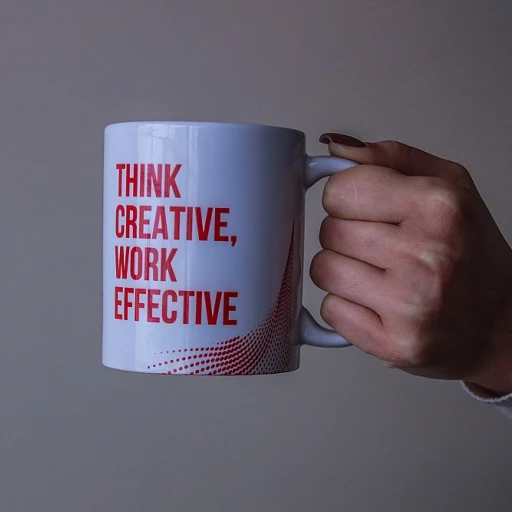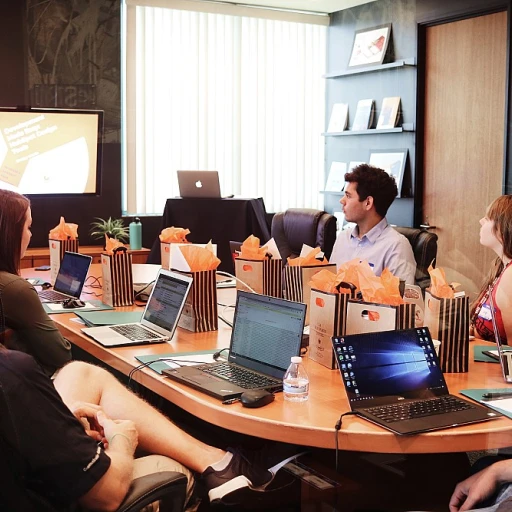
Understanding the Importance of Mental Health in the Workplace
The Critical Role of Mental Health in the Work Environment
The increasing awareness of mental health issues has underscored its pivotal role in fostering a productive and supportive work environment. Employees spend a significant portion of their day in the workplace, making it imperative for organizations to integrate mental health care strategies into their culture. A well-thought-out mental health initiative not only benefits the employees but also enhances overall organizational productivity.
As workplaces evolve, the mental health of employees has become one of the most important aspects of health support and well-being strategies. The correlation between a supportive work culture and employee mental health is evident; organizations that actively support and provide resources for mental wellness report higher levels of employee satisfaction and engagement. These initiatives can take various forms, such as stress management workshops, mental health training, and access to professional health services.
Understanding mental health issues within the professional setting is critical. Chronic stress and mental fatigue have become common concerns that impact employees across all levels. Efforts to integrate comprehensive mental health support and resources are crucial in addressing these challenges. Such integration involves not only deploying employee support programs but also creating an inclusive culture where employees feel safe to express mental health concerns and seek help.
Current Challenges in HR Mental Health Initiatives
Recognizing the Hurdles in HR's Approach to Mental Health
Addressing mental health in the workplace is complex and HR departments often face several challenges when implementing health initiatives. Identifying these challenges is essential for unlocking success in creating supportive environments for employees. Several key obstacles include:- Lack of Awareness and Training: HR professionals sometimes lack adequate knowledge or training in mental health issues, hindering their ability to provide necessary support. Training programs need enhancement to equip HR teams with the tools to foster a health-conscious workplace culture.
- Stigma Around Mental Health: Mental health stigma persists in the work environment. Employees may hesitate to seek help due to fear of judgment or negative consequences, making it vital for HR to cultivate an inclusive workplace where mental well-being is prioritized.
- Limited Resources and Services: Even with a recognized need for mental health programs, many organizations struggle with resource constraints. Ensuring access to mental health services is crucial. Companies need to evaluate and optimize the use of their existing health resources and services, as discussed in unlocking success.
- Integrative Practices: Disconnected health initiatives can dilute effectiveness. For mental health support to be truly effective, it must be integrated into broader organizational practices and employee engagement strategies.
- Sustaining Initiatives Over Time: Maintaining momentum and relevance across different months and quarters, like january to december or april to march, challenges the continuity of health programs. It requires regular assessment and adaptation to fit the evolving needs of the workforce.
Innovative HR Technologies Supporting Mental Health
Leveraging Technology to Address Mental Health Challenges
The advent of modern technology has transformed the workplace mental health landscape, providing diverse tools for employee well-being. In today's fast-paced work environments, tech-integrated platforms are essential for HR professionals to offer tailored support and resources. Firstly, Employee Assistance Programs (EAPs) have evolved significantly. These are now delivered via digital platforms, allowing employees to access mental health care and services from anywhere. EAPs often include stress management programs, counseling services, and mental health assessments that can be used year-round, as efficaciously in september august as in october september. Remarkably, artificial intelligence (AI) plays a vital role, particularly in identifying behavioral patterns and predicting potential mental health issues before they escalate. Through real-time data analysis and sentiment tracking, AI offers a precise understanding of employee moods and encourages timely intervention. Furthermore, mental health apps have become a cornerstone for workplace mental initiatives. These apps provide daily mindfulness training, meditation aids, and stress relief exercises that employees can integrate into their routine. They not only offer convenience but also foster a supportive culture by normalizing mental health discussions and practices. Conversational bots or chatbots are another technological innovation. Designed to provide instant support and resources, these bots engage with employees around the clock, offering a safe space to discuss stress and mental well-being. They serve as an initial step before seeking professional help, making mental health support more accessible. Lastly, virtual reality (VR) in training programs has shown promise in offering immersive environments for stress reduction and relaxation. It's an innovative way HR departments can enhance their mental health initiatives. Employee well-being technology innovations are a testament to the ever-evolving tools at the disposal of HR professionals committed to fostering a healthy workplace culture.Integrating Mental Health Solutions into HR Systems
Seamless Integration of Mental Health Solutions
Integrating mental health solutions into HR systems is a crucial step towards fostering a supportive work environment. This integration not only enhances employee well-being but also aligns with the broader organizational culture of care and support. The process involves several strategic steps that ensure the solutions are effective and sustainable.
Leveraging Technology for Better Access
Technology plays a pivotal role in integrating mental health resources into HR systems. By utilizing platforms that offer mental health services, organizations can provide employees with easy access to support and care. These platforms often include features such as virtual counseling, stress management programs, and mental health training modules. This technological integration ensures that employees have access to necessary resources at any time, promoting a healthier workplace.
Customizing Solutions to Fit Organizational Needs
Every organization has unique needs and challenges when it comes to mental health. Therefore, customizing solutions to fit these specific requirements is essential. HR departments should work closely with mental health professionals to tailor programs that address the particular stressors and health issues faced by their employees. This customization ensures that the initiatives are relevant and effective, leading to better employee engagement and participation.
Ensuring Continuous Support and Evaluation
Once mental health solutions are integrated into HR systems, it is important to provide continuous support and regularly evaluate the effectiveness of these initiatives. Regular feedback from employees can help identify areas for improvement and ensure that the programs remain relevant. Additionally, ongoing training for HR professionals on best practices in mental health support can enhance the overall impact of these initiatives.
Building a Culture of Openness and Support
Integrating mental health solutions is not just about implementing programs; it's about fostering a culture of openness and support. Encouraging employees to speak openly about mental health issues without fear of stigma is crucial. This cultural shift can be supported by regular communication from leadership, promoting mental health awareness, and offering resources that help employees manage their well-being effectively.
Case Studies: Successful HR Integrations for Mental Health
Lessons from Real-World Examples
As businesses increasingly recognize the critical link between mental health and employee performance, several organizations have adopted successful strategies to integrate mental health solutions within their HR frameworks. These initiatives showcase how thoughtful integration can yield significant benefits for the workforce and the organization.Pioneering Mental Health Practices
Many companies have implemented comprehensive health programs designed to reduce work-related stress and build a supportive work environment. This often starts with health training sessions for employees, equipping them with the necessary skills to manage stress and prioritize self-care. Additionally, offering access to mental health professionals is a key component, providing employees with direct access to support whenever needed.Effective Employee Support Systems
A standout example includes the implementation of digital platforms that facilitate mental health services, allowing employees to access resources seamlessly within the workplace. By aligning these platforms with existing HR systems, organizations can ensure that health initiatives are embedded into the company's culture. These digital services can be employed as a preventative measure, aiding employees before minor stress issues escalate.Integrating Health Resources
Organizations have found success in creating a collaborative health culture by promoting open dialogue about mental health issues. Initiatives that create a sense of community and understanding among employees help normalize conversations surrounding mental well-being. This openness encourages employees to seek help without fear of stigma, resulting in a healthier workplace mental environment. Collaboration with various departments also ensures that mental health resources are tailored to specific employee needs.Implementing Continuous Improvement
Finally, best practices in mental health integration emphasize the importance of continuous evaluation and improvement. Regularly measuring the effectiveness of mental health programs and adjusting as needed ensures that the initiatives remain relevant and helpful. By adopting a dynamic approach, organizations stay responsive to the ever-evolving needs of their workforce. These cases underline the importance of well-integrated mental health initiatives within HR systems. They demonstrate the vital role HR plays in not only addressing health concerns but actively contributing to a supportive and productive work environment.Future Trends in HR and Mental Health Integration
Emerging Trends in HR Mental Health Integration
As organizations continue to recognize the critical role of mental health in the workplace, the integration of mental health solutions into HR systems is evolving. The future of HR and mental health integration is poised to be shaped by several key trends that aim to enhance employee well-being and create a supportive work environment.
Personalized Mental Health Support
One of the most promising trends is the move towards personalized mental health support. With advancements in data analytics and AI, HR systems can now offer tailored mental health resources and programs that address individual employee needs. This approach not only improves the effectiveness of mental health initiatives but also fosters a culture of care and support.
Integration of Mental Health Training
Training programs focused on mental health awareness and support are becoming integral to HR strategies. By equipping employees and managers with the skills to recognize and address mental health issues, organizations can create a more empathetic and responsive workplace culture. This trend emphasizes the importance of continuous learning and development in fostering a healthy work environment.
Leveraging Technology for Better Access
Technology continues to play a pivotal role in enhancing access to mental health services. From mobile apps offering stress management tools to virtual therapy sessions, technology is breaking down barriers to mental health care. This trend is particularly significant in providing support to remote employees and ensuring that mental health resources are accessible to all.
Focus on Preventative Measures
Preventative measures are gaining traction as organizations aim to address mental health issues before they escalate. By implementing proactive health initiatives, such as regular mental health check-ins and stress management workshops, companies can reduce the incidence of mental health problems and promote a healthier workplace culture.
Collaborative Efforts with Mental Health Professionals
Collaboration with mental health professionals is becoming increasingly common as organizations seek to enhance their mental health support systems. By partnering with experts, HR departments can ensure that their programs and resources are grounded in best practices and provide effective support to employees.
As these trends continue to develop, the integration of mental health solutions into HR systems will play a crucial role in shaping the future of workplace mental health. By staying ahead of these trends, organizations can create a supportive and healthy work environment that prioritizes employee well-being.













